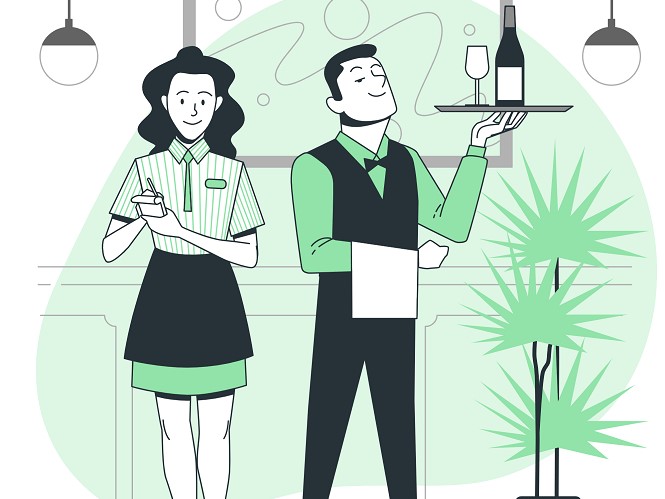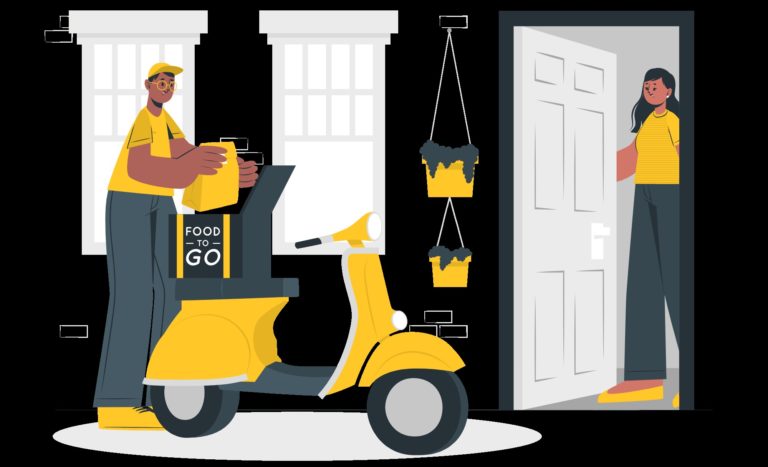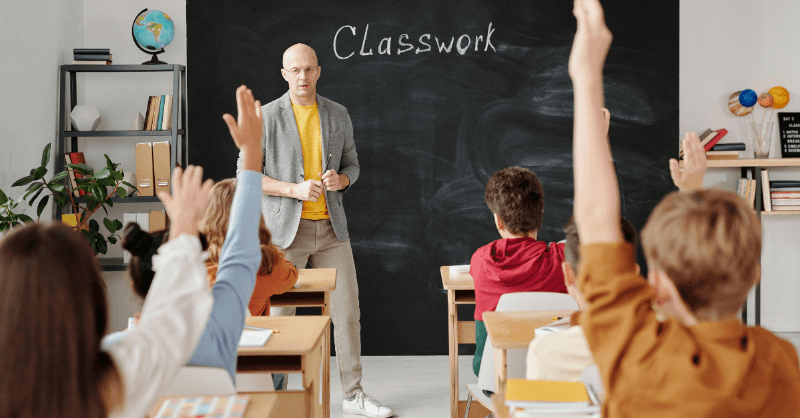Many of us think Communication and Interpersonal skills are similar. They both revolve around interaction and being at your best behaviour. But there are some major differences between Communication and Interpersonal skills.
Food and beverage service is about hospitality. It is about making people comfortable with delicious foods and a serene environment. Communication and interpersonal skills of the people running the business play a great role to maintain it. In a way, communication skills fall under the radar of interpersonal skills. So we will start with what is interpersonal skills.
Interpersonal Skills
Interpersonal skills are the ability to understand and interact with other people, individually or in a group. It includes a variety of sub-skills such as speaking, listening or questioning skills. Interpersonal skills also refer to social skills, people skills and soft skills.

Furthermore, interpersonal skills are our ability to get along with others on a personal or professional level. It is the level of empathy that we feel toward another person and the situation they are going through.
From your customers to your co-workers are people with individual feelings and needs. Therefore, if you understand them and put yourself in their shoes, you can provide quality service. You can also make your co-workers feel valued as well. All this will, in turn, increase the efficiency of your service.
Interpersonal skills, therefore, mainly cover the following aspects of our skills.
1. Communication Skills:
These include verbal and non-verbal communication and listening skills. Food and beverage services usually take instruction from customers. Communication skills will be discussed in detail in a while.
2. Team Working
Showing a great deal of teamwork spirit and capacity helps to work in a group. In the food and drink business, chefs and waiters need to have a good amount of teamwork skills. It helps to keep the business organized at all times. It also helps to get the orders ready in time and give exclusive services.
3. Emotional Intelligence
Emotional intelligence is the ability to control or manage your own emotions in order to relieve your stress. Having control over your emotions helps you to work efficiently. People usually come to a restaurant or similar places to spend quality time personally or professionally. Emotional Intelligence helps you to connect and empathise with your customers and co-workers.
4. Problem-Solving and Decision Making Skills
You need to handle problematic situations, angry customers or unhelpful co-workers. You need the ability to identify and solve problems. Furthermore, you also need to have decision-making skills which will be the best for business.
5. Influencing or Negotiation Skills
With a good amount of influencing and negotiation skills, you can retain your customers. For example, if your orders are running late, you can offer your guests some complimentary treats. With positive reinforcement or inspiring your staff, you can also increase service performance.
6. Conflict Management:
You need to work through conflicts and disagreements. Many times customers will not be satisfied with the food or services. You need to have a way with them to keep them pleased as much as possible. Many times there are conflicts inside management. You also need to think through it to get out of it positively without any damage.
Communication Skills
Communication skills are the ability to convey an idea or message to others in the most understandable way. It includes understanding an idea, message or set of instructions and the ability to take action on it. Communication skills include verbal and non-verbal and listening skills. These skills help you give and take clear instructions. They help you share ideas with your team and co-workers and keep the overall management updated with helpful information and tasks.

For effective communication, interpersonal skill is an integral part. Your interpersonal skills will be useless if you cannot understand a message or pass it to another person. On the other hand, conveying a clear message will be useless if you say it in a rude or impolite way.
There are three necessary parts of communication skills:
1. Verbal Communication
Verbal communication is conveying a message from one person to the other by using words and voice. When you speak, you have to be clear, concise, and accurate. While giving food services, you have to speak politely as well. Through verbal communication, you can greet your customers, give instructions to your staff and co-workers. Therefore, you must have good verbal communication skills to interact.
2. Non-verbal Communication
Non-verbal communication is the message that you give to the surrounding people without saying anything. For example, your gesture, body language, behaviour are examples of nonverbal communication. In a food and beverage service, you have to concentrate on non-verbal communication a lot. Your uniform should be clean, and your behaviour should be friendly. It will help send your customer the message that your food and beverage service is hygienic and clean.
3. Listening Skills
Along with great verbal and non-verbal communication, you have to be perfect at listening too. You have to listen carefully to what your customer is asking for. You also need to listen to your co-worker to carry out an instruction perfectly.


![]() 13 minutes
13 minutes





















